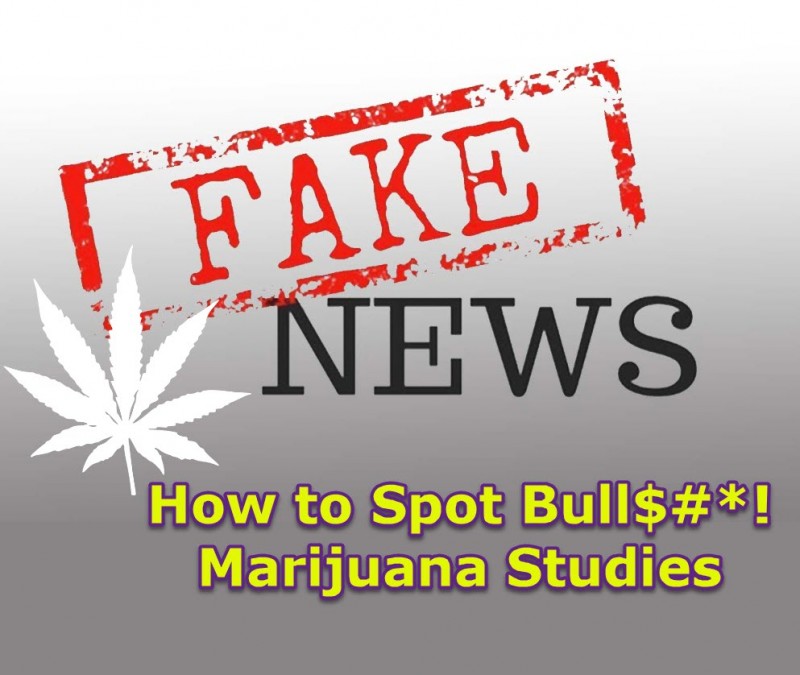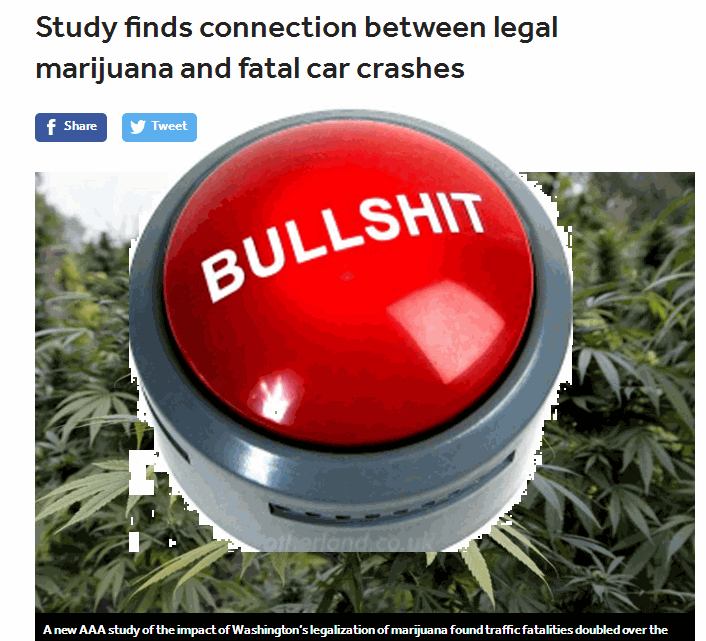How to Spot Bull$&!@ Marijuana Studies
How to Spot Bull$&!@ Cannabis Studies from CannabisNet on Vimeo.
As a cannabis writer, I have seen my fair share of bullshit marijuana studies. Wat are bullshit marijuana studies you may ask?
Well, it’s those bunk studies that make a wild and outlandish claim about marijuana without ever supporting it with evidence. The problem with these studies are that they do have influence on the general population.
A tried and tested cannabis consumer would look at the study and simply say, “Nah…I don’t think so…I’ve smoked for X amount of years and that has never happened to me…”
However, for those on the fence about marijuana the truth of the matter is that they don’t have personal experience to pull from. The statements made in those studies actually influence the way they look at marijuana and if they are eligible to vote…could influence how they vote as well.
Thus, I find it incredibly important to know how to decipher when a study is actually bullshit, or whether we can take the information to heart.
Today we’ll be walking through the main points to look out for when you come across a study that just doesn’t seem…right.
Titles Matter
One of the first thing you’ll need to look at is how the title is constructed. It tells you a lot about the motivation of the study. For instance, if someone were to say, “Marijuana the cause of hair loss…” you can immediately see that the study is bias against cannabis.
Why?
Because hair loss has to do with testosterone and if marijuana was the cause of hair loss, then it would mean that every person who is bald would have smoked marijuana. Thus, when you see general claims like that in titles…beware!
A more appropriate title would be something along the lines of, “What is the impact of THC on Testosterone levels and how does it apply to hair loss”.
As you can see, the title is asking a question. The motivation of the study is to find the truth. Real studies are designed to “seek the truth” and not make a conclusion pre-emptively. This is why titles matter!
Look for Key Words – Might, Could, Etc.
The next thing you’ll want to be looking for are keywords that indicate that there is no solid evidence for their findings. For instance, “Marijuana could cause X problem…” This shows us that the study authors actually didn’t discover the correlation between cannabis and the problem they were looking at.
However, this doesn’t mean that they won’t use it to push their agenda. When a study lacks evidence, the authors (especially those being backed by anti-cannabis companies) stretch the truth and make assumptions. They aren’t providing conclusive evidence about cannabis, but rather speculate that it “may” do that.
As cannabis consumers, we easily debunk these “illusive claims” because we can pull on our personal experience as reference. However, for those who have no personal experience, the usage of the words “May, Might, potentially” fade into the background and for the most part people conclude “Cannabis does do what the authors say.”
This is an old Neuro-linguistic trick where you reinforce a concept without actually making a commitment to the initial idea. The reader, after repeatedly being exposed to the idea eventually assume it to be true despite the lack of evidence.
It’s manipulation plain and simple.
Follow the Money!
Finally, always look at whose funding these studies. At times, you have to dig deep because the “sponsors” of the studies could very well be a shell company for another organization that benefits from prohibition.
In one study, it took me a few hours to track down the “mother company” that sponsored that particular study. It was shrouded with fake subsidiaries and institutions. Eventually, after digging for the source of the funds, I found that it was “Drug Free America” or some organization of the likes.
The money trail is your best bet to see whether a study is on the up and up or whether it’s bullshit. Sometimes it’s not easy to discover the source, but once you do you can easily spot whether the study has bias or not.
Usually, educational institutions are merely looking for answers. Their studies also tend to be focused on the positive effects of marijuana. However, when you’re coming across studies looking at the negative effects of cannabis…odds are that it’s sponsored by some organization that benefits from its illegality.
Why is it important to spot Bullshit Studies?
While there is no denying that cannabis is on the rampage towards legalization, there are still a number of people who aren’t totally convinced. We need them on board to be able to chip away at the monster that is prohibition.
By you learning how to spot these bullshit studies, you can be the voice of reason to those who are still on the fence about cannabis legalization. While not everyone can be on the front lines of legalization, everybody should be speaking up when misinformation is being spread about this beneficial plant.
How to Spot Bull$&!@ Cannabis Studies from CannabisNet on Vimeo.
OTHER STORIES YOU MAY ENJOY...
FAKE CANNABIS STUDIES THAT YOU CAN SPOT, READ THIS, CLICK HERE.








